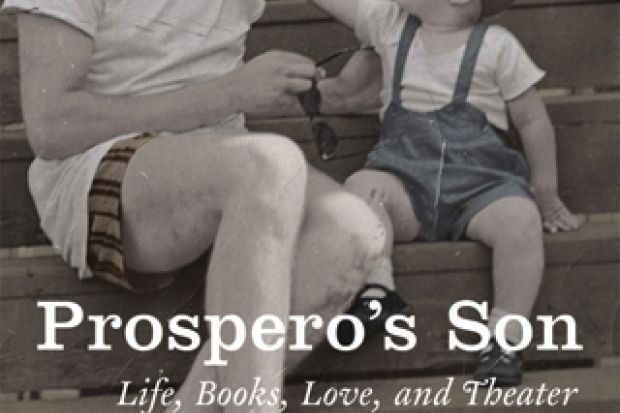The fictions and pretences of theatrical performance form the lens for this fascinating and highly personal memoir of fraught and dysfunctional family relationships. Characteristically for a work written by a scholar of literature, Seth Lerer’s text is full of quotations, centring of course on Shakespeare’s The Tempest. The opening section cites the US historian Henry Adams: “The profoundest lessons are not the lessons of reason; they are sudden strains that permanently warp the mind.” Drawn from The Education of Henry Adams, this quotation succinctly illustrates both the disjointed structure and the multi-layered nature of Lerer’s memoir. An autobiographical attempt to come to grips with the radical changes in society wrought by industrialisation, promoting self-education over the inadequacies of formal schooling, Adam’s Pulitzer-prizewinning 1918 book parallels Lerer’s focus. This too is a personal history that is intended to illuminate the social history of an equal shift in consciousness from the end of the Second World War (and his parents’ marriage), to an age marked by the computer and internet revolution.
Tradition, represented by Jewish rituals, is shown to be increasingly out of place, as when at university Lerer holds an impromptu bar mitzvah ceremony for another Jewish student. The ritual scarves and hats are emptied out into comic performance, replaced with lengths of toilet paper. Later, saying Kaddish for his father at a memorial gathering, Lerer is moved by remembered lines from The Tempest to pick up a prayer book, “then…Hebrew spilled from me like spells”. Yet in Lerer’s case, the traditional Jewish family - possibly the most culturally established icon of family itself - has already been broken by his father’s coming out as gay, divorcing and abandoning his sons by moving from New York to San Francisco.
Set against this revelation of darkness in life are books that bring a universal significance to the personal experience
Prospero is quoted as a subtext to this Kaddish: “Graves at my command/Have waked their sleepers, oped, and let them forth/By my so potent art.” And this, of course, signifies precisely what Lerer achieves here in terms of his own memories. He receives news of his father’s death (in a perhaps rather too coincidental situation, since he reports it as occurring when teaching The Tempest) at the opening of the first chapter. As he clears out his father’s San Francisco apartment, items of clothing, snapshots, excerpts from books on the shelves, posters of theatre shows on the walls, sundry items (generally fakes) in drawers, all serve to call up illuminating incidents from the past.
Yet the title he has chosen for this memoir is deeply ironic, since Prospero of course has only a daughter - and, as Lerer, points out, with the exception of “clowns and kings”, none of Shakespeare’s central father figures has a son: “as if they couldn’t bear the burden of male children”.
In a disturbing sense, then, the father-son relationship highlighted here is presented as unnatural. Lerer’s father, Larry, is characterised as a magician, because as a small-time professional actor, everything in his life was theatrical, in the sense of being illusory. His versions of events turn out to be lies, while everywhere he goes he treats the people around him as audiences, and what Lerer learns from his behaviour is that “it’s magic, to show up out of nowhere and amaze the crowd and disappear”. A problem child at school, Lerer was put on the sedative Thorazine, with the result that long stretches of childhood vanished from his consciousness. Just like Lerer himself at the same age, his son is fascinated by science, and at this point in the memoir fathers and sons overlap. But Lerer’s son becomes so erratic and dangerously destructive that he has to be removed from home by police and shut in a psychiatric facility in the wilds of Utah: in Lerer’s terms, “like Caliban in exile”.
In The Tempest, Prospero acknowledges the darkness within himself, in the shape of Caliban; and this is the point of Lerer’s writing. However, set against this revelation of darkness in life (as Lerer’s subtitle suggests) are books that bring a universal significance to the personal experience, and theatre that consoles through artifice. Drama, we are told, is dressing up; and the final scene in this uncomfortable but fascinating memoir shows Lerer putting on his father’s leather jacket and silver tie to attend a show at a theatre where the audience have been asked to show up in period costume.
Register to continue
Why register?
- Registration is free and only takes a moment
- Once registered, you can read 3 articles a month
- Sign up for our newsletter
Subscribe
Or subscribe for unlimited access to:
- Unlimited access to news, views, insights & reviews
- Digital editions
- Digital access to THE’s university and college rankings analysis
Already registered or a current subscriber?
